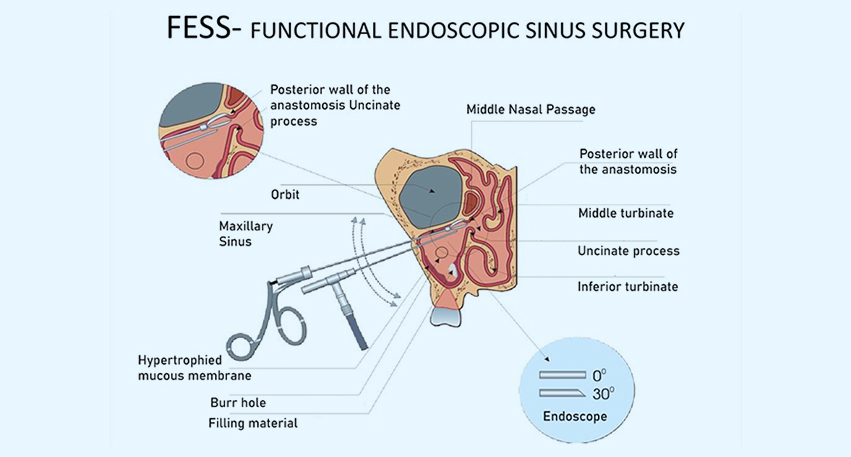FESS aims to alleviate symptoms of chronic sinusitis, including congestion, facial pain, and recurrent infections. By addressing structural issues and improving sinus drainage, FESS can lead to long-term relief for many patients.
While FESS is generally considered safe, there are potential risks, including bleeding, infection, changes in sense of smell, or injury to nearby structures. The severity of risks depends on factors such as the patient’s overall health and the complexity of the procedure.
Recovery after FESS is typically faster than traditional sinus surgeries. Patients may experience some congestion, mild discomfort, or nasal drainage in the days following the procedure. Most people can return to normal activities within a week, although strenuous activities may be limited for a slightly longer period.
Patients should immediately consult their doctor if they experience severe pain, persistent bleeding, signs of infection, or worsening symptoms after FESS. Regular follow-up appointments help ensure the ongoing success of the procedure.




